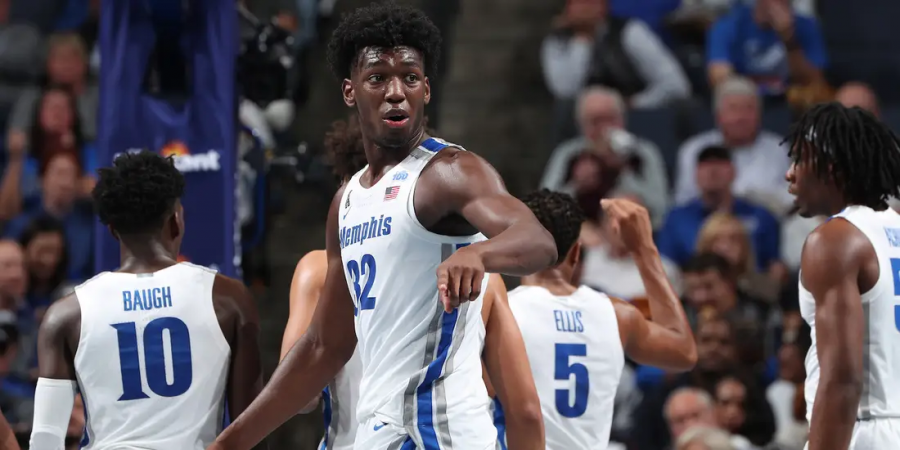Should NCAA Athletes Be Paid?
December 16, 2019
With Memphis center James Wisemen suspended 12 games for accepting a ‘booster’ from his coach, a new debate has been sparked on if NCAA athletes should be compensated with pay. Legislation in California called the Fair Pay to Play Act, which was signed this year, has allowed for a group of college football programs to be able to make money off endorsements and agents. However, the NCAA has threatened to disassociate with the conference of teams as a whole if this bill is put into effect. In the past five years, lawsuits against college players have ramped up as many have been accused of taking sums of money to play for a specific school. A famed NCAA Men’s Basketball coach was fired in 2018 for bribing recruits to play for Louisville, which also resulted in the vacation of their 2013 NCAA championship. The NCAA has gone as far as not allowing NCAA athletes to own their own merchandise, such as jerseys as well. Over the summer, the NCAA even targeted agents, making their qualifications to be eligible to represent an NCAA athlete unrealistic; this spurred a huge social media backlash and an eventual appeal of the rule.
The case to be made in favor of paying college athletes is simple: NCAA sports is the only business in the world where the largest earners aren’t compensated or aren’t allowed to benefit off their image. While it’s been found that most schools lose money in sports, the NCAA made $1.1 billion in 2017, and that number still grows today. NCAA Men’s Football alone generates 31 million dollars a year. This money goes to many different places, except for back to the people who generated it. A majority of NCAA athletes come from a less fortunate background, and use their success in athletics to get an education. This can also help the women’s side of NCAA athletics as many women’s sports in the U.S. have a huge wage disparity with their men’s counterparts. While women’s sports overseas make closer to what men make, many don’t want to change their entire life so they can be paid fairly. Allowing female athletes to make money at the collegiate level could help them make money during their time in college and be better off when making it to the professional leagues.
Although they are still amateur athletes, the NCAA’s Stars, specifically college basketball players, generate insane amounts of cash for their schools and the NCAA. They travel a lot and are taken away from school, putting them at somewhat of a disadvantage when it comes to their actual studies. While some may say “They aren’t worried about school,” about 81.3% of these athletes graduate from college. Clearly, they must care a little. While the NCAA directly paying may not be feasible, allowing these kids to benefit off their success would pay off dividends for them.
The main argument against allowing these athletes to make money is that “they are just kids”, “an education is enough”, and “Colleges are sometimes losing money to run an NCAA program”. All of these arguments aren’t strong enough cases as it is hard to justify why you wouldn’t allow a player to have their own agent to guide them and be able to make money off sponsorships and even own their own merchandise. For the point that colleges can’t even fund themselves, out of their $1.1 billion in revenue from 2017, the NCAA gave about half of that $560.3 million of it back to schools they profited off of. Much of the rest of the revenue goes to scheduling games and venues for neutral-location games. On the other hand, you have to be realistic and realize that an actual paycheck from the NCAA to its athletes wouldn’t be realistic at all. The NCAA has thousands of athletes and unless they were willing to fork over a serious amount of money, it would be hard to pay ALL the athletes. Nonetheless, allowing athletes to make their own money with third-party sponsorships and endorsements is something that could be done easily. While the NCAA might lose money, this could help amend their relationship with players and fans after a long history of picking money over moral values.



